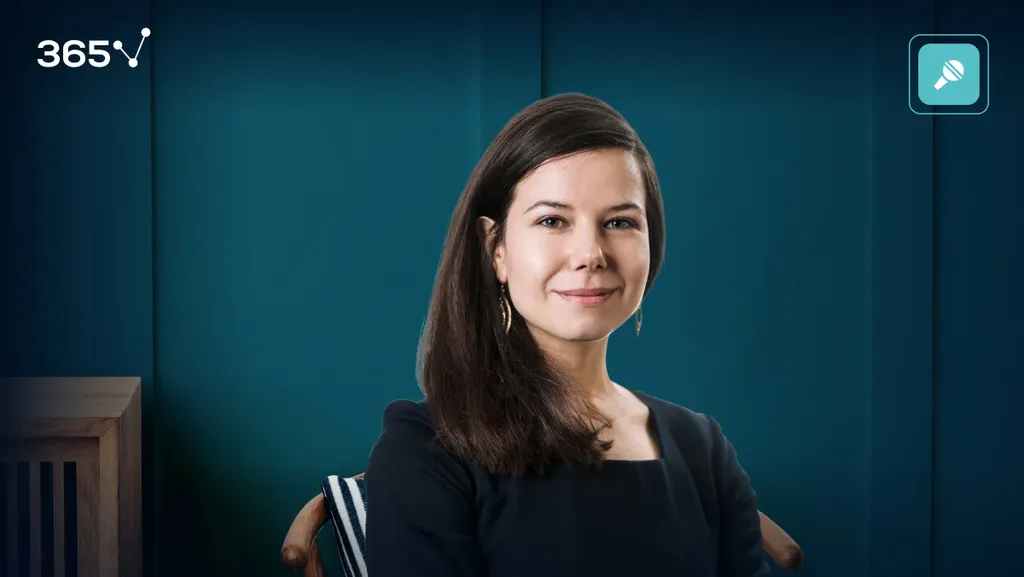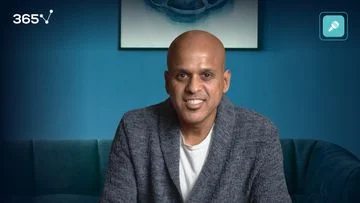
Breaking into data science is a long and winding road that requires technical and soft skills and a lot of resilience. We spoke to data science leaders and well-liked names in the data science community to discover how and when they knew they had what it takes for a career in the field. They shared their stories and the qualities they developed to succeed.
In this interview, we introduce you to Elitsa Kaloyanova—data science instructor and Head of Data Content at 365. Learn more about her journey from bioinformatics to data science and her advice for aspiring data scientists from various backgrounds.
Interview with Elitsa Kaloyanova
Would you please tell us a bit about your background and journey into data science?
My background is in bioinformatics—where I encountered data science for the first time, taking a course on machine learning and one on statistical learning. Back then, the focus was very much on using those techniques to solve problems from the life sciences. It was an interesting time; genome data was becoming increasingly available, so the demand to analyze and interpret it using algorithms was high.
When did you know you have what it takes?
You’ll be the first to know when I know I have it! The truth is, I always doubt myself. To some extent, you fake it until you make it. But I’ve been doing this for a few years, and it seems to work. The trick is to persevere and keep building data science skills, even if becomes difficult or you make mistakes. If you keep learning, things will become easier; you’ll get more experienced at tackling problems and avoiding missteps. Eventually, you’ll gain the confidence to say, “Yeah, I do have what it takes.”
As a data scientist, one needs strong analytical thinking and a lot of technical know-how. What skills did you start with, and how did you develop them to meet the role requirements?
I started with mathematics and added computer science to the mix during my university years. The jump to data science was easy because you understand the theory behind algorithms and know how to code. But it’s not enough to be a data scientist in the real world. For me, working with real data was a big challenge at the beginning, so I had to learn about data preprocessing. I also needed to understand the business itself and ask questions from that perspective, which was completely new to me, coming from a scientific background.
Learning is a lifelong process—especially in a field that’s as dynamic as data science. Is there something new you’d like to learn more about or become better specialized in?
Data science is evolving quickly, and you must ensure you’re on top of things. Last year, we started working on a data project within the company, and I upskilled a lot—e.g., learning SQL programming for the first time.
I’m now focused on honing my soft skills, which are just as crucial for a data scientist. I’m trying to get better at planning regarding my team’s responsibilities and my own work. My top priority is ensuring we deliver the best content possible for our students.
As an expert in the field, you must have an ample idea of the qualities a person needs for data science. What would you say those are?
Great question. I don’t know if I can answer that. When I look at my team—and the people I’ve worked with in the field—we all come from different backgrounds: bioinformatics, physics, economics, and even sound engineering. There’s not one complete set of qualities to become a data scientist.
Having an analytical brain, being curious, and wanting to get to the bottom of things are qualities we all have in common. The rest is deciding what you’re best at or most interested in, e.g., algorithms, coding, data visualizations, statistics, etc. Then you can start sharpening those data science skills.
As the industry develops, the demand for skilled data scientists grows exponentially. What gives an aspiring data scientist a competitive edge in 2023?
To gain an edge, you must take every opportunity to learn new things, especially in data science. You can take a new course, read a paper, or look for opportunities to grow within your company. Signing up for a new project or training is also a great way to do that. But also try and be strategic about it.
You should always look for emerging trends in the field. For example, what is now happening with AI started to take off over a decade ago; the data science community knew of its potential even then. Now, the whole world is seeing what it can achieve. There will be a lot of demand for machine learning experts in the industry. Another trend in the field is big data. Knowing Hadoop and Spark or having experience with AWS or Microsoft Azure is an advantage.
I believe that learning will allow you to stay ahead of the curve.
We want to thank Elitsa for taking the time to provide valuable insights into what it takes to be a data scientist. Her contributions to the 365 Data Science platform have been invaluable, as is her dedication to providing students with high-quality training for their future roles. Check out her Complete Data Visualization Course on the 365 Data Science platform.
Our aim at 365 is to equip you with the tools and give you the necessary guidance to succeed. Designed never to let you give up, the 365 Data Science platform has what you need to develop your qualities and skills.
Go from a beginner to a skilled professional who creates data-driven value. Study the statistics and probability theory behind data science with online courses led by our renowned instructors, and master sought-after skills like Excel, SQL, and Tableau. Prove you’ve got what it takes with industry-recognized certificates.




